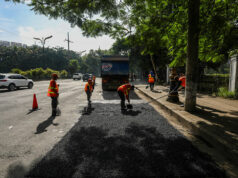Dreaming bigger: How platform thinking can level up the Philippines
By Eddie Ybañez
OVER the long weekend that began with Chinese New Year on Friday, Feb. 21, 2017, I had the privilege of spending time with the twelve teams who were competing in Startup Weekend Cebu Youth Edition 2018.
Like the tens of thousands of other teams who compete in Startup Weekend competitions across the globe every year, their goal was the same: Conceptualize a start-up over the 48-hour duration of the contest and then pitch the idea before a panel of judges during the closing of the event.
As the teams formed and cofounders discussed potential business ideas, I realized that their success hinged on their understanding of a single word: start-up.
With the tech ecosystem in Manila and in Cebu still nascent, emerging in the last five to ten years, and our business curriculum still reflecting more traditional pursuits and paradigms, the term “start-up” would still be relatively new to most participants. At best, they would have acquired the term through osmosis — by reading headlines of Silicon Valley start-ups getting acquired, or in due turn, hearing that their friends wanted to build their own startups in the Philippines — but never have it explicitly defined.
I speak from experience, too.
When I myself joined Startup Weekend Cebu in 2012, I only had a vague notion of what a start-up was. Back then to me a start-up was simply any organization that wanted to solve a problem through technology, and my entry into the competition reflected that: Together with cofounder Kenneth Baylosis, we imagined a value-added service that enabled Filipinos to hail a cab to their location completely through text messaging. Over the last six years, this idea has since evolved, and Micab, as we now call our company, allows Filipinos in Cebu, Davao, Iloilo, and Manila to hail a taxi through our Android or iOS app.
Based on my own experiences, I would like to define start-up in the way that I think will be most helpful to both Filipino founders and our country at large, beginning by explaining first what it is not. A startup is not simply any business with a tech or digital component, as I myself originally thought in 2012. For example, if you own a neighborhood lavanderia and you wish to open up online booking for pick-up and delivery via a Web site, I would argue that adding this e-commerce functionality would not classify it as a start-up.
I would instead encourage Filipinos to think of a start-up as a platform, one with two sets of user groups — usually buyers and sellers, or in cases like Micab, users and providers. Your role, as start-up founder, is to facilitate interaction between the two user groups, and in doing so, you would address a market inefficiency in the Philippines.
Let’s return to the lavanderia example.
If instead of simply choosing to create a booking system for your own lavanderia’s pick-up and delivery, but instead launched a platform that equipped all lavanderias across Metro Manila with a similar, out-of-the-box system, I would argue that you are in fact a start-up.
Why? Because you’re addressing a real pain point in the country, not just for yourself but potentially hundreds of thousands people just like you: You’re solving a problem at scale. I myself experienced what it was like to combine a traditional laundry shop with technology, when I founded Laundrytopia in the Pasong Tamo area of Makati City as an experiment to understand how I could incorporate Micab with it. That Laundrytopia expanded to one production house and three branches in a single year of operations just goes to prove my point: Platforms are the way to go.
Some may wonder why I care so much about redefining the Philippine start-up as the Philippine platform.
Since my own participation in Startup Weekend Cebu in 2012 and the one just last weekend, I’ve attended dozens of similar competitions, and to the extent that I have constructive feedback for some of the participants, it’s almost always the same: Their ideas are not big enough. Often they amount to just digitizing a service or business they already provide, such as selling clothes through a website, or offering their services through an app. Take my constructive criticism of these ideas as evidence of my absolute faith in Filipino talent and ingenuity: We can do so much more.
If on the other hand, we get all our aspiring founders to think of their startup as a platform, and they’re building it to address a market inefficiency between two large user groups, we’ll get a new generation of Filipinos solving the biggest problems facing our country. This is what I myself am trying to humbly accomplish through Micab and my dream of “Taxi 2.0”: I want to make it safer, easier, and more convenient for passengers in search of a cab with drivers in search of passengers.
There are thousands of more market inefficiencies in our country just waiting to be solved by entrepreneurs bold enough to believe they can, and that’s why I’d like to leave them with but one thought, most especially to the great future founders of the Philippines who won at Startup Weekend Cebu, including Where’s my Bus? (1st place), Finding Doctor (2nd place), Co.Lab (3rd place), Lakbay (4th place) and Transugbo (Special Award: Best Pitch): Set out in search of not what you can build, but in whom in the country you can unite.
Eddie Ybañez is the CEO and cofounder of taxi-hailing application Micab, and he envisions the creation of a “Taxi 2.0” for the country’s riding public.



